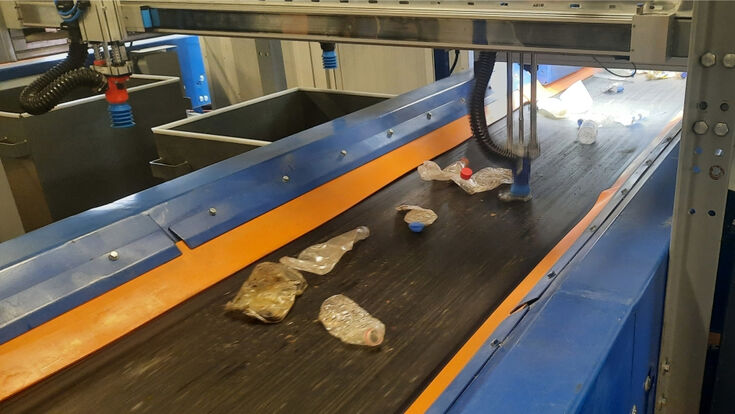Fostering Source Efficiency and Environmental Defense With Liquid Waste Removal Programs
In the realm of environmental stewardship, the administration of fluid waste stands as an essential juncture where resource performance and ecological defense converge. Via a lens of proactive involvement and tactical insight, the landscape of fluid waste management reveals a tapestry of difficulties and possibilities that bid us to check out the path towards a greener and more lasting future.
Relevance of Liquid Waste Removal
The importance of fluid waste removal hinges on its crucial duty in protecting ecological wellness and safeguarding public well-being. Liquid waste, otherwise appropriately handled, can position major threats to ecological communities, water sources, and human wellness. Through reliable elimination processes, hazardous compounds such as pollutants, microorganisms, and chemicals are prevented from contaminating the setting and creating harmful results.
Appropriate liquid waste removal also aids in preventing the spread of conditions and minimizing the potential for groundwater contamination. By safely taking care of liquid waste, the risk of waterborne ailments and pollution-related health and wellness problems is considerably minimized - Industrial waste water treatment. Furthermore, efficient elimination methods add to keeping the overall cleanliness and aesthetics of communities, thereby enhancing the lifestyle for homeowners
Furthermore, fluid waste removal plays a vital role in supporting sustainable development and making sure compliance with ecological laws. By adhering to appropriate waste monitoring markets, services and procedures can lower their ecological footprint and demonstrate company responsibility. Ultimately, buying durable fluid waste removal programs is crucial for promoting environmental stewardship and fostering a healthier, more secure future for all.

Advantages of Reliable Disposal
Efficient disposal of fluid waste not only safeguards environmental health and public well-being however likewise produces numerous advantages that prolong beyond instant control measures. One crucial benefit of reliable disposal is the reduction of pollution in water bodies and soil. By properly taking care of liquid waste, the danger of contamination reduces, protecting ecosystems and protecting biodiversity. Additionally, reliable disposal techniques add to resource conservation. Via procedures like recycling and energy recovery, useful resources can be drawn out from liquid waste, advertising sustainability and minimizing the stress on raw materials. Moreover, taking on reliable disposal methods can cause cost savings for organizations and areas. By enhancing waste administration processes, organizations can simplify procedures, decrease disposal costs, and possibly produce earnings through the sale of recycled materials. Generally, the benefits of effective fluid garbage disposal are diverse, including ecological protection, resource efficiency, and financial advantages.
Technologies for Waste Treatment
Utilizing innovative technologies for waste therapy plays a vital function in making certain the reliable administration and safe disposal of fluid waste. One of the vital modern technologies used in fluid waste therapy is organic therapy.
In addition, thermal therapy techniques such as incineration can be employed for the total damage of dangerous elements in liquid waste. Overall, the combination of varied treatment technologies makes sure detailed and ecologically pleasant administration of liquid waste.
Function of Regulations and Conformity
In the home world of liquid waste administration, adherence to regulatory structures and compliance requirements is extremely important for safeguarding ecological health and sustainability. Regulations play a critical function in governing the appropriate handling, treatment, and disposal of liquid waste to avoid harm to communities and human health. By developing clear guidelines and criteria, regulative bodies make certain that businesses and people associated with fluid waste monitoring run in an environmentally liable way.
Conformity with these laws is not just a legal requirement yet additionally an ethical obligation to protect the setting for present and future generations. It includes implementing finest techniques in waste collection, transportation, therapy, and disposal to minimize environmental influence and promote source performance. Non-compliance can lead to penalties, lawful activity, and reputational damages for organizations, highlighting the value of promoting governing requirements.

Future Fads in Waste Management

An additional crucial pattern in waste management is the fostering of advanced data analytics and expert system to optimize waste collection routes, improve arranging processes, and boost total functional effectiveness. These innovations make it possible for waste management business to make data-driven decisions, bring about cost savings and ecological advantages.
Moreover, there is an expanding emphasis on the development of decentralized waste management systems, such as onsite therapy centers and mobile waste processing systems. These systems provide flexibility and scalability, permitting much more reliable waste handling in varied atmospheres.
Conclusion
Finally, fostering resource effectiveness and environmental management through fluid waste elimination programs is crucial for lasting development. Reliable disposal techniques, progressed modern technologies for waste treatment, and strict regulations play key duties in lessening environmental influence. Looking in advance, continuous innovation and improvement in waste administration techniques will be necessary for resolving the expanding obstacles of liquid garbage disposal.
In the world of environmental stewardship, the monitoring of liquid waste stands as a crucial juncture where source efficiency and environmental defense merge (Reclaim Waste liquid waste removal).Using innovative innovations for waste treatment plays an essential duty in making sure the efficient monitoring and secure disposal of liquid waste.In the world of fluid waste monitoring, adherence to governing frameworks and conformity requirements is extremely important for safeguarding ecological wellness and sustainability.In verdict, cultivating source efficiency and ecological protection via liquid waste elimination programs is important for sustainable growth. Looking ahead, constant advancement and improvement in waste management techniques will be essential for attending to the growing difficulties of fluid waste disposal